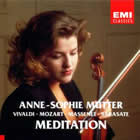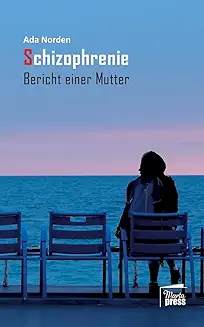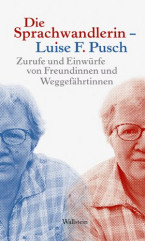Biographies Anne-Sophie Mutter

born on June 29, 1963 in Rheinfelden, Baden, Germany
German violinist
60th birthday on June 29, 1923
Biography
“Nothing is more boring than being pinned down. I always want to find new facets in my artistic personality.” This is what “Germany's most prominent violinist” said in 1998 about her preference for including the latest compositions in her repertoire alongside the classics and making them known to the public. Throughout a spectacular career, the former child prodigy has remained true not only to this guiding principle but also to another, namely that of determining her own path. “Nothing is forced on me,” she claims about the number of her concerts and the selection of her programs.
Even as a child, Anne-Sophie knew what she wanted. The youngest child and only daughter of Gerlinde (Winter) Mutter and journalist and newspaper editor Karl-Wilhelm Mutter, she fell in love with the instrument at age five when she heard a Mozart recording by Menuhin. She convinced her parents that she should have violin lessons instead of the piano lessons planned, and the following year she won Jugend musiziert, the national competition for young musicians aged 6 to 24. She was the youngest winner ever in the history of this competition. (After her second win a year later, she was asked not to participate again). She received many invitations; acting as her manager, Anne-Sophie's father limited her public performances to one or two a year. Most of her concerts took place at home with her two brothers Christoph (piano) and Andreas (viola). Her mother and private teachers took over her non-musical education.
When Anne-Sophie was ten years old, her violin teacher Erna Honigberger died, and the child prodigy joined Aida Stucki at the Winterthur Conservatory. (Both teachers had been pupils of Carl Flesch.) At thirteen, Anne-Sophie was “discovered” by Herbert von Karajan and began her international career in 1977 under his direction as a soloist at the Salzburg Whitsun Festival. Concerts and recitals followed in England, Berlin and North America, at first numbering only five or six a year. Soon, however, the artist was undertaking extremely strenuous tours, with 120 performances in one year and debut appearances in Moscow, Japan, Toronto and Jerusalem in 1985 alone.
Anne-Sophie Mutter experiences no jittery anxiety when performing: focussed and thoroughly self-possessed, she plays with absolute technical perfection. Mutter's “aristocratic” appearance in front of the audience is further emphasized by her beauty; she always plays in low-cut evening gowns. “Never in my life would I go on stage in a dress that is not beautiful,” she explained to an interviewer. However, she also emphasizes the practical advantages of off-the-shoulder gowns for playing.
Mutter's enthusiasm for contemporary music has enriched the violin repertoire: She commissions works, and composers such as Lutoslawski and Penderecki have dedicated new compositions to her. She gave the debut performance of André Previn's Violin Concerto, written for her, in Boston in March 2002. (She married the composer, 35 years her senior, shortly thereafter.) Mutter is celebrated not only as a soloist but also as a chamber music partner; a tour of Germany and Switzerland in a trio that included the pianist Lambert Orkis and cellist Lynn Harrell took place in 2002. Her numerous recordings have won many awards, including the Grammy Award for Best Chamber Music Performance in 2000 for the live recordings of the Beethoven sonatas. The Order of Merit First Class of the Federal Republic of Germany is among the many other awards she has received.
The world star is also passionate about charitable causes. She has established a foundation that supports young string players around the world, and regularly gives charity concerts to support work on medical and social problems. In 2002, for example, she gave a concert for a clinic in Neuwied and one for the Beethoven House in Bonn. Mutter was married to lawyer and Karajan friend Detlef Wunderlich for six years, until his death in 1995. She has a son and a daughter.
(Text from 2002, translated with DeepL.com in 2023, edited by Ramona Fararo)
For additional information please consult the German version.
Author: Joey Horsley
Quotes
“The violin is my voice.”
(Anne-Sophie Mutter)
Boehm: “The men in your life have actually always been much older than you.”
Mutter (laughing heartily): “So - you don't know all the men in my life.”
(Interview with Gero von Boehm, summer 2008).
On technical novelties and the difficulties of contemporary violin concertos:
“[That] is fun, after all! I am always looking for new tasks. Because I learn very quickly, and I also like to return to something else very quickly.”
Music and theater:
Question: “When you put a contemporary work on the program - do you ever have to lower your fee demands?”A.S.M.: “I don't know .... I always prevail anyway. I'm doing a tour next year with the Penderecki concerto. I'm like a bulldozer…. uncompromising in that regard. Otherwise, I'm always willing to compromise. But when I believe in something .... I know that the audience appreciates learning new things and being taken seriously.”
Both quotes from “I set the tempo.” Interview with Anne-Sophie Mutter by Werner Pfister & Andrea Meuli. ©1998 Music & Theater / Swisscom - the blue window.
If you hold the rights to one or more of the images on this page and object to its/their appearance here, please contact Fembio.



